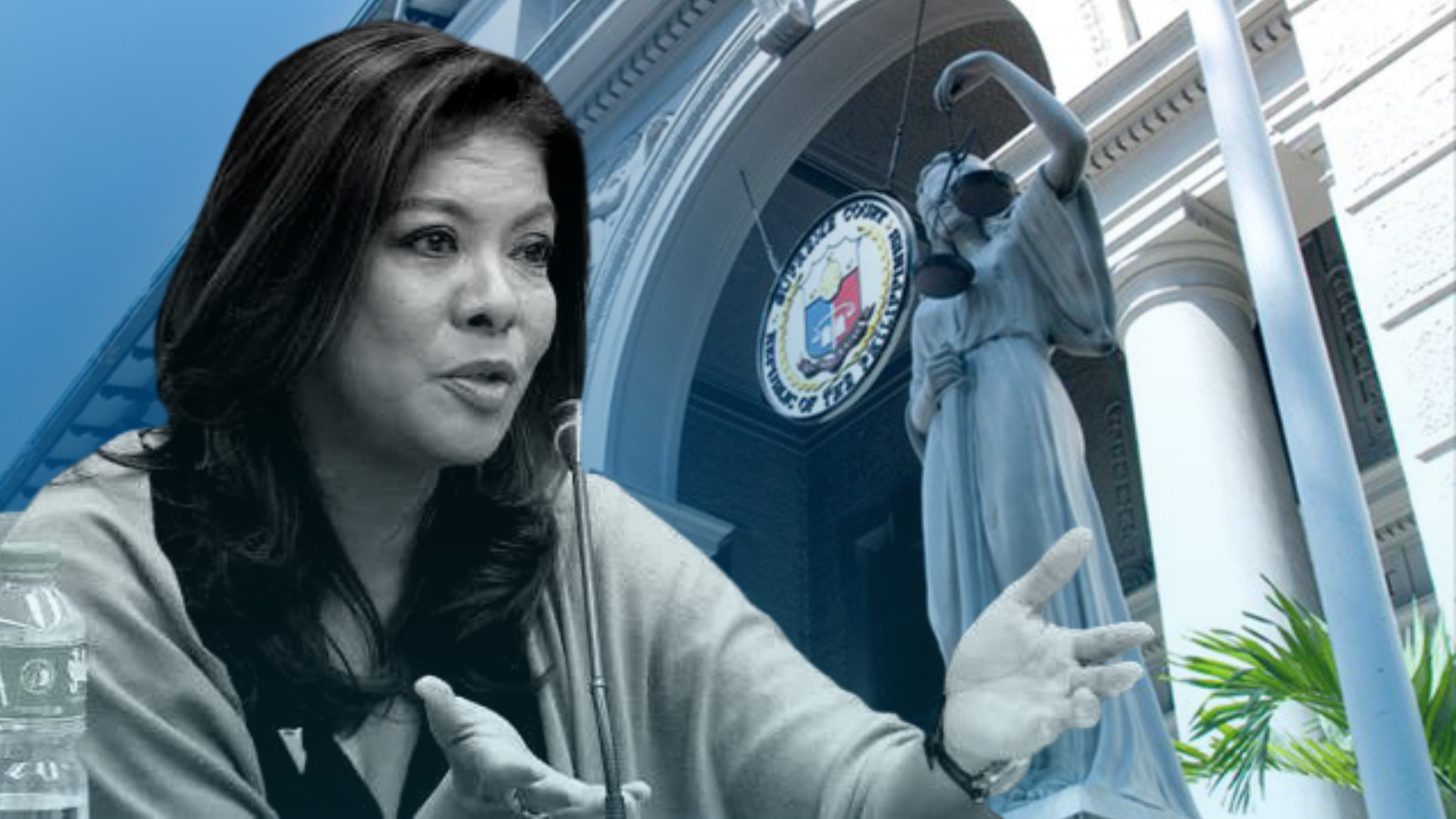The Supreme Court has slapped a P30,000-fine on a former government anticommunist mouthpiece for making “vitriolic statements and outright threats” against a Manila Regional Trial Court (RTC) judge who had ruled against declaring the Communist Party of the Philippines (CPP) and the New People’s Army (NPA) terrorist organizations.
Voting 14-0, as the 15th justice was on leave, the high court found Lorraine Badoy Partosa guilty of indirect contempt for her social media posts in September 2022.
It warned her that she would get a “more severe sanction” if she repeats the same or similar offense.
“Unwarranted attacks on the dignity of the courts are not constitutionally protected speech and may constitute contempt of court,” the high tribunal said in a 52-page decision authored by Senior Associate Justice Marvic Leonen.
The court’s decision on a petition filed in October 2022 against Partosa by a group of lawyers was promulgated on Aug. 15, 2023, but announced only on Wednesday. The court did not explain the delay in announcing the decision.
The high court defines indirect contempt as actions not committed within the court but are nonetheless “directed against the dignity and authority of the court or a judge acting judicially.”
While the judiciary is not immune to public criticism, the Supreme Court said that “there is a well-defined line between legitimate criticism and utterances that are intended to attack the integrity of the courts or are aimed at influencing court decisions.”
“An incitement to commit lawless violent action and is likely to cause such violent action causing death or injury is not covered by the constitutional privilege of protected speech,” it said.
Apology
Partosa, who was a spokesperson for the National Task Force to End Local Communist Armed Conflict (NTF-Elcac) apologized to the Supreme Court in a statement on Thursday, but said she could not say sorry for the “outrage” toward Judge Marlo Magdoza-Malagar of Manila RTC Branch 19.
“I’d like to apologize to the Highest Court in the land for the intemperate language and tenor I took. I hear them but I maintain that I never threatened anyone with harm,” Partosa said. “I cannot, however, apologize for the outrage I felt that made me take pen to paper and pour my heart out—an outrage that I feel to this day,” she said.
The case stemmed from Partosa’s Facebook posts against Malagar who decided on Sept. 21, 2022, to dismiss a Department of Justice (DOJ) petition to declare the CPP-NPA, terrorist organizations.
Two days after the ruling was published, Partosa posted tirades against the judge, claiming that Magdoza-Malagar “weaponized the court of law” to favor her alleged “friends,” the CPP-NPA and the National Democratic Front of the Philippines (NDFP), and that she did not base her decision on the Constitution.
Partosa said: “If I kill this judge and I do so out of my political belief … then please be lenient with me.”
In another post on the same day, she threatened to bomb the offices of judges whom she deemed to be “friends of terrorists.”
On Oct. 3, 2022, several deans of law schools and other lawyers filed an urgent petition to charge Partosa with indirect contempt in the Supreme Court.
According to the petitioners, her acts have “far-reaching consequences to our constitutional democracy and the independence of the judiciary.”
The following day, the high court issued a stern warning against those who “continue to incite violence through social media and other means which endanger the lives of judges and their families.”
It also ordered Partosa to show cause why she should not be cited in contempt of court for attacking Magdoza-Malagar.
In response to the show cause order, Partosa argued that her posts were done “in the exercise of journalistic comments and constitute fair comments on a matter of public interest.”
In answer to the lawyers’ petition, Partosa said she was “deeply disappointed” with the judge’s dismissal of the proscription case.
‘Hypothetical syllogism’
She denied that she threatened to kill Malagar, arguing that the supposed threatening words, if read in their entirety, were just “hypothetical syllogism.”Partosa also maintained that the social media posts were made in the exercise of her freedom of expression, “a valid criticism of a public officer” and “expression [of] exasperation.”
According to the high court, Partosa’s assertion that Magdoza-Malagar dismissed the DOJ’s petition because of her supposed “friendly ties” with the rebel groups “threatens the impartial image of the judiciary.”
Partosa’s so-called criticisms were not made in good faith or without malice, the court said.The court also determined that violence was a likely outcome when Partosa stated that she wanted to create an organization that would bomb “the offices of these corrupt judges who are friends of terrorists.”
“She was not merely advancing her advocacy when she made those incendiary statements on social media; she effectively made a call to action against Judge Magdoza-Malagar and the entire Judiciary. This, we cannot allow,” it said.
Rights group Karapatan hailed the Supreme Court decision as a “legal victory” that shed light on the “very real dangers” posed by the Red-tagging committed not only by Partosa, but also the NTF-Elcac and its members.
Kabataan Rep. Raoul Manuel on Thursday sought the creation of a system to hold accountable persons involved in Red-tagging.
Manuel said the court ruling essentially said that Red-tagging was harmful, incited violence, illogical and it could kill those so-labeled. —WITH REPORTS FROM JACOB LAZARO AND JEANNETTE I. ANDRADE
